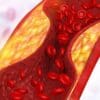The Impact of Menopause on Lipid Profiles: Navigating Hormonal Changes with Confidence
Understanding Menopause and Lipid Profile Changes
Menopause, a natural transition in a woman’s life, marks the end of reproductive years and is characterized by significant hormonal fluctuations. These changes, particularly the decline in estrogen levels, can have profound effects on various bodily functions, including lipid metabolism. Lipids, or fats, play a crucial role in energy storage and cell structure, making their balance essential for overall health.
During menopause, the decrease in estrogen can lead to alterations in lipid profiles, which include changes in cholesterol and triglyceride levels. Estrogen is known to have a protective effect on the cardiovascular system, and its reduction can lead to an increase in low-density lipoprotein (LDL) cholesterol, often referred to as bad cholesterol, and a decrease in high-density lipoprotein (HDL) cholesterol, known as “good” cholesterol. These changes can increase the risk of developing cardiovascular diseases, which necessitates proactive management strategies.
Navigating Menopause-Induced Lipid Changes
1. Dietary Modifications: Incorporating heart-healthy foods can help manage lipid levels effectively. A balanced diet rich in omega-3 fatty acids, fiber, and antioxidants, such as those found in fish, nuts, whole grains, fruits, and vegetables, can help maintain a healthy lipid profile.
2. Regular Physical Activity: Engaging in regular exercise helps improve heart health by increasing HDL cholesterol and lowering LDL cholesterol and triglycerides. Activities such as brisk walking, cycling, and yoga can be particularly beneficial during menopause.
3. Medical Consultation**: Regular check-ups with healthcare professionals are essential for monitoring lipid levels and overall health. In some cases, medications like statins may be prescribed to manage cholesterol levels effectively.
4. Stress Management: Hormonal changes can affect mental health, leading to stress and anxiety, which can further impact lipid metabolism. Practices like meditation, deep breathing exercises, and adequate sleep can help mitigate stress.
Why Fitpaa is Your Companion in Health Management
As you navigate through menopause, ensuring your health remains optimal is crucial. Fitpaa offers a comprehensive solution tailored to meet your unique needs during this transformative phase. Our AI-driven metabolism monitoring and management technology can help you track and optimize your lipid profiles effortlessly.
How Fitpaa Can Help:
– Personalized Metabolism Assessment**: Understand the root causes of changes in your lipid levels with our personalized metabolism assessment, designed to provide insights into your current health condition.
– Customized Fitpaa Capsule: Receive a personalized health plan that includes medical nutrition therapy, exercise guidance, and cognitive behavior therapy, all tailored to manage your lipid levels effectively.
– Real-Time Guidance: Stay motivated and on track with real-time guidance and support, ensuring you take the necessary steps to maintain a healthy lifestyle.
– Convenient App Experience**: With the Fitpaa app, access tools like a virtual workout trainer and diet tracker to seamlessly integrate healthy habits into your daily routine, making lipid management easier than ever.
Your Next Steps with Fitpaa
Experiencing menopause does not have to mean compromising your health. With Fitpaa, you have a supportive partner dedicated to helping you achieve your health goals. Download the Fitpaa app today and embark on a journey towards improved health and wellness with guaranteed results. Your well-being is our mission, and with Fitpaa by your side, nothing is impossible. Let’s transform your life together!











